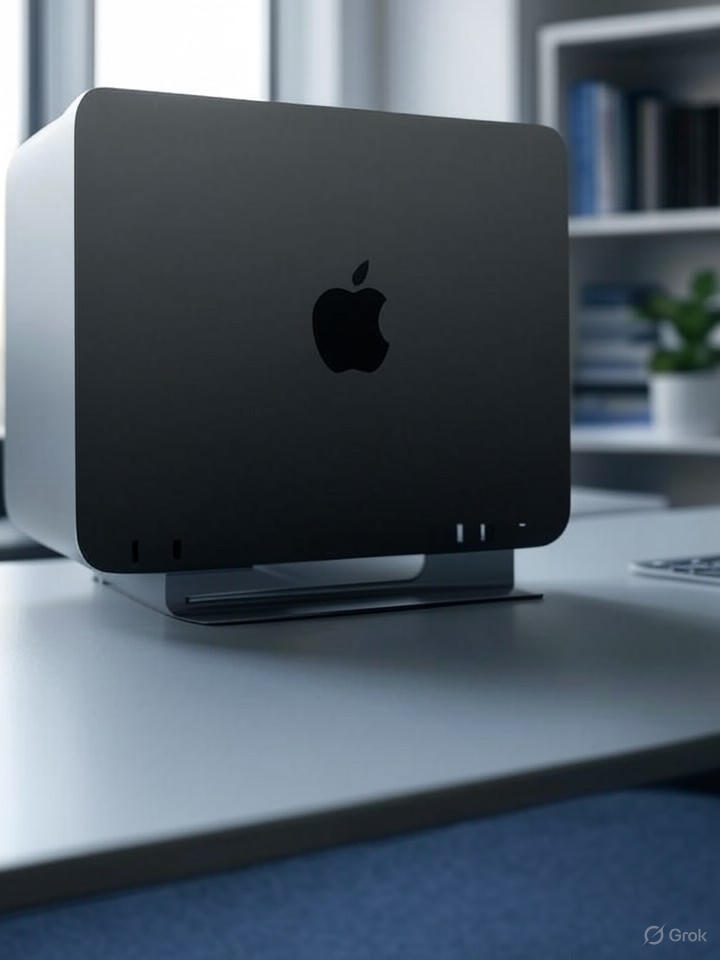Apple appears to be sidelining its Mac Pro, a desktop computer once celebrated among creative professionals, in favor of the more compact and efficient Mac Studio. Recent insights from Bloomberg’s technology journalist Mark Gurman indicate that the company has deprioritized the Mac Pro, marking a significant shift in its product strategy. This decision highlights Apple’s commitment to integrated solutions within its silicon era, as the Mac Studio is positioned as the future of professional desktop computing.
In his latest newsletter, Gurman revealed that Apple has “largely written off” the Mac Pro, with no major updates expected through 2026. The last iteration of the Mac Pro, released in 2023 and equipped with the M2 Ultra chip, has struggled to compete with the advancements seen in the Mac Studio. The Mac Studio, which starts at $1,999, offers similar performance in a more compact package compared to the Mac Pro’s starting price of $6,999.
Mac Studio Takes Center Stage
The shift toward the Mac Studio reflects Apple’s transition to its custom silicon, which began in 2020. While the Mac Studio received its M4 Ultra update earlier this year, the Mac Pro remains stagnant with the older M2 Ultra chip. Analysts have noted that the once-coveted features of the Mac Pro, such as expandable PCIe slots and modular design, have lost their appeal in light of Apple’s integrated chips, which efficiently handle high-performance tasks.
Influential voices in the tech community, including Gurman and fellow tech influencer Vadim Yuryev, have echoed this narrative. On November 16, 2025, Gurman stated on X (formerly Twitter): “Don’t hold your breath for a new Mac Pro as Apple puts it back on the back burner.” Yuryev further pointed out the disparity in chip updates, noting the Mac Studio’s advancements compared to the stagnant Mac Pro.
Current market sentiment reflects a similar consensus, with publications like 9to5Mac and Engadget reporting that Apple has no immediate plans to refresh the Mac Pro. Instead, the Mac Studio is being hailed as the de facto professional desktop, potentially relegating the Mac Pro to a state of “product purgatory,” a term used to describe devices that receive infrequent updates.
Challenges and Historical Context
The Mac Pro’s history is one of peaks and valleys. Originally launched in 2006, it catered to professionals requiring expandable hardware, such as video editors and 3D artists. However, the 2013 redesign faced criticism for its lack of upgradability, prompting a return to a tower model in 2019. Despite these efforts, the Mac Pro has struggled to maintain relevance in a market increasingly dominated by integrated solutions.
Data from iClarified reveals that Apple has abandoned plans for an M4 Ultra version of the Mac Pro, redirecting its resources toward the Mac Studio. This decision appears to stem from disappointing sales, as the Mac Pro constitutes a small fraction of Apple’s overall revenue, overshadowed by laptops and all-in-one devices.
For professionals seeking extensive customization, the lack of updates for the Mac Pro could prove disappointing. Its PCIe slots facilitate specialized hardware integration, which the Mac Studio does not support. Nevertheless, Apple’s ecosystem increasingly prioritizes software optimization and performance efficiency, as evidenced by tools like Final Cut Pro and Logic Pro, which leverage the unified memory of Apple Silicon.
Apple’s Chief Financial Officer, Kevan Parekh, indicated during an earnings call in October 2025 that no new Macs are anticipated for the remainder of the year. This comment has set the stage for a significant product refresh in 2026, with the notable absence of a Mac Pro update from the upcoming lineup.
Industry analysts speculate that Apple may eventually phase out the Mac Pro entirely, similar to the fate of the 27-inch iMac. The absence of updates raises questions about the future of modular computing solutions, potentially creating opportunities for custom PC builders targeting professionals seeking tailored configurations.
Looking forward, Apple is preparing for a major rollout of its M5 chip, which promises to enhance performance while maintaining compact designs. This evolution points to a broader trend within the tech industry, wherein integrated solutions are favored over traditional modular designs.
The fate of the Mac Pro serves as a reminder of the fast-paced nature of technology and consumer preferences. As Apple continues to innovate, its commitment to efficient, integrated solutions will likely shape the future of its professional product lineup.






































































